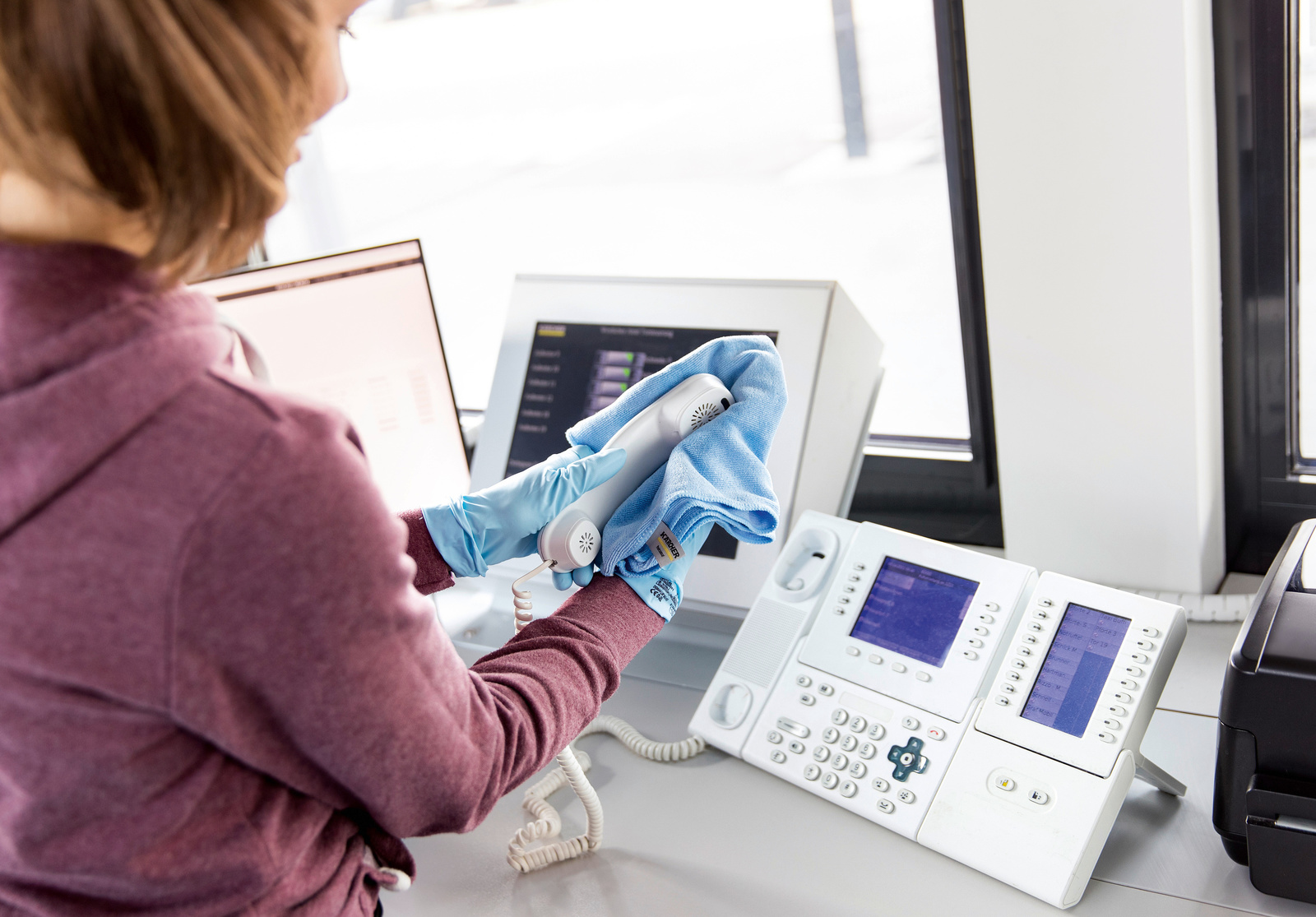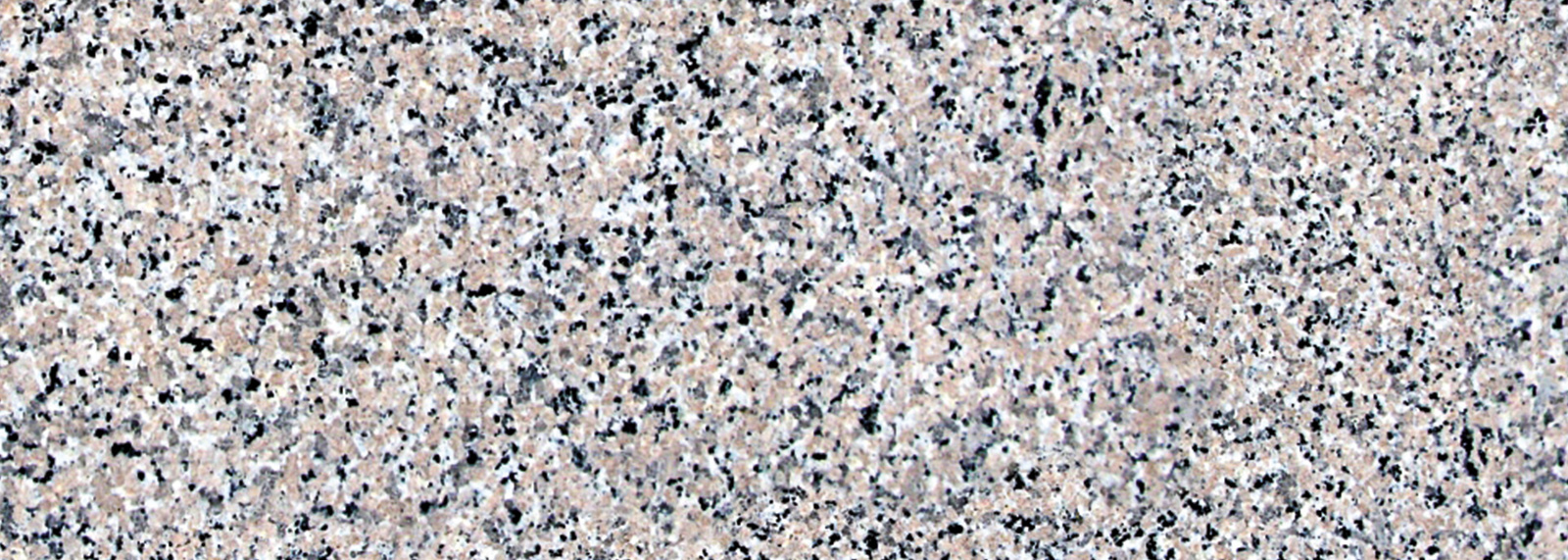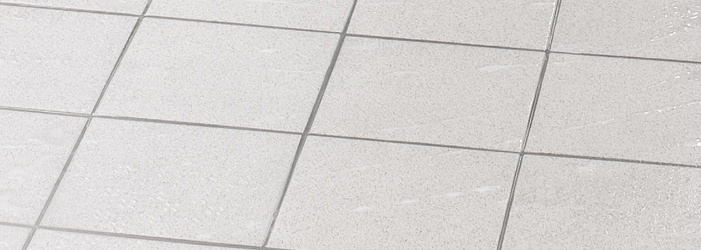Cleaning the entrance area
The entrance area is like a business card for every hotel, shops, restaurants, car dealership or museum. The place where guests enter an establishment should be somewhere they feel welcome and comfortable – at best, so comfortable that they want to return. But it's not just stylish furnishings and smiling staff which are crucial here; the entrance area should also be immaculately clean to win over every visitor, since hygiene plays a key role in places where people are constantly coming and going. Here is an overview of helpful measures to ensure every reception area can show itself at its best.
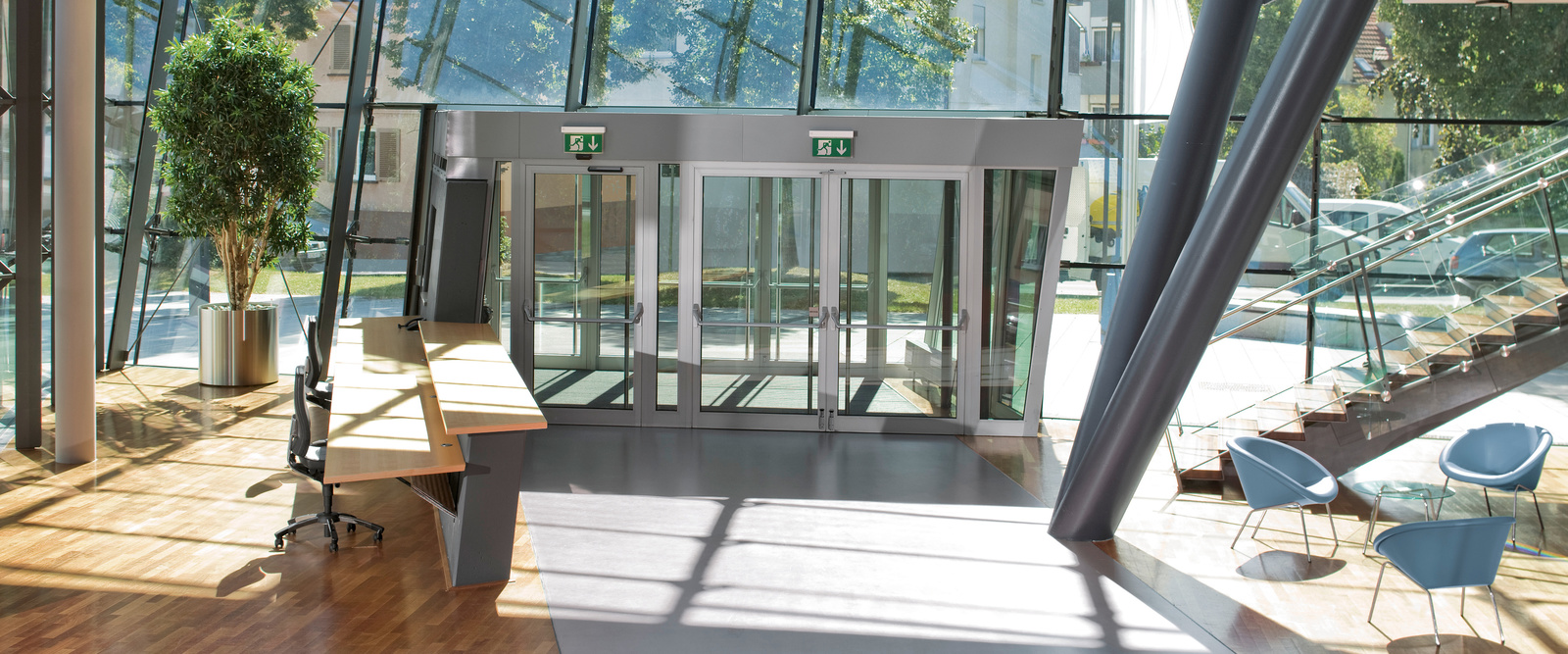
Deep cleaning is proven to remove over 90 per cent of the microorganisms and germs from surfaces. Those working in areas where food is sold must know how to carry out cleaning tasks properly and efficiently. Moreover, when it comes to "touch points" (i.e. surfaces that are regularly touched by many people), there are additional issues which need to be considered, such as disinfection and sanitation, to not only stop dirt but also to prevent the spread of viruses and bacteria.
The entrance area
First impressions matter: Sweeping and cleaning in the entrance area

First impressions matter: Customers entering the restaurant don't want to feel uncomfortable. It is quick and convenient to ensure that car parks and entrances to shopfloors are clean using a sweeper or vacuum sweeper. For smaller areas of up to 300 square metres, a manually operated model is ideal, with the operator providing necessary pushing force. These sweepers are easy to handle and ergonomic for users. They also sweep areas thoroughly and ensure a low-dust environment. For larger areas in car parks or entrance areas, a push machine powered by an electric motor or petrol engine is the best choice.

It is advisable to install a dirt trap in the form of a mat or grille close to the entrance door. This will prevent coarse particles, such as small stones, sand and mud, from reaching the shopfloor. This mat or grille should be between about four and six paces in length to ensure that a sufficient amount of dirt is removed from customers' footwear. In order to extend the lifetime of the mat, it should be regularly cleaned with a wet and dry vacuum cleaner, dry vacuum cleaner or cordless electric broom, depending on the level of dirt.
Top of the list for every waiting area: Well-maintained floors
Of course, floors are particularly susceptible to contamination. Anyone coming in usually also brings in dirt from outside, especially in wet weather, and especially if the premises are directly accessible from outside and are not reached via a stairwell, for example. Dirt trap zones and entrance mats can be a saving grace here: They prevent dirt from being carried into the premises and also, to a certain extent, keep out moisture. The mats should be cleaned regularly with a wet and dry vacuum cleaner, electric broom or upright brush-type vacuum cleaner. The machines are also suitable for maintenance cleaning in the adjacent floor area.



Even with this measure, of course, the floors still need regular thorough cleaning. When it comes to hard and resilient floors, such as tiles or linoleum, manual wiping systems are a popular choice for daily maintenance cleaning. Dry vacuum cleaners or wet and dry vacuum cleaners have also proven their worth for maintenance cleaning, as they fulfil a wide range of cleaning tasks, adapting flexibly to different floor coverings. Another factor that should also be considered is that using a manoeuvrable scrubber drier is worthwhile for an area of 100 square metres and above. It not only works more thoroughly than a manual wiping system allows – it also achieves a more hygienic result, as the dirty water is sucked up immediately. Even with more intensive cleaning steps, such as intermediate and deep cleaning, the scrubber drier ensures both time savings and impressive results. Of particular importance in floor cleaning is the fact that the different floor coverings used in reception areas also have different cleaning requirements. Therefore, the nature of the floor coverings should be taken into account in all cleaning processes.
Cleaning and maintaining natural stone
Natural stones with the same or similar look can have very different technical properties, particularly with regard to sensitivity to alkalis or acids, firmness and water absorption. It is these factors which determine which stone is suitable for which purpose and how it must be maintained in order to retain its appearance for a long time. Before cleaning, you must therefore have thorough knowledge of the stone's properties based on its mineral composition and surface treatment, as well as its usage.
Cleaning fine stoneware tiles
Fine stoneware tiles are an attractive, very popular floor covering which stands out thanks to its robust and slip-resistant qualities, as well as its very low moisture absorption rate. A modern and safe design medium, it is impossible to imagine floor coverings without fine stone nowadays.
Impeccable glass surfaces for a flawless look
Well-maintained glass surfaces also let a reception area shine. Glass is often used to create a light and friendly atmosphere, but is susceptible to visible contamination. Spot contamination is best tackled with glass cleaner and a cloth. For larger areas, using a professional window washer together with a squeegee or a commercial surface vacuum cleaner will achieve an even result. With the help of the Window Vac, puddles on the floor and associated safety risks can be prevented.
So tempting to sit on: How to keep upholstered furniture in reception rooms looking good day after day
To achieve a long-lasting good impression, there is one aspect just as crucial as brilliantly clean glass surfaces: Well-maintained upholstered furniture. If you don't want annoying stains to spoil the overall impression, you have to be quick because stains should be removed the same day they appear. This is because fresh stains are easier to remove, easier to spot and cannot spread any further.
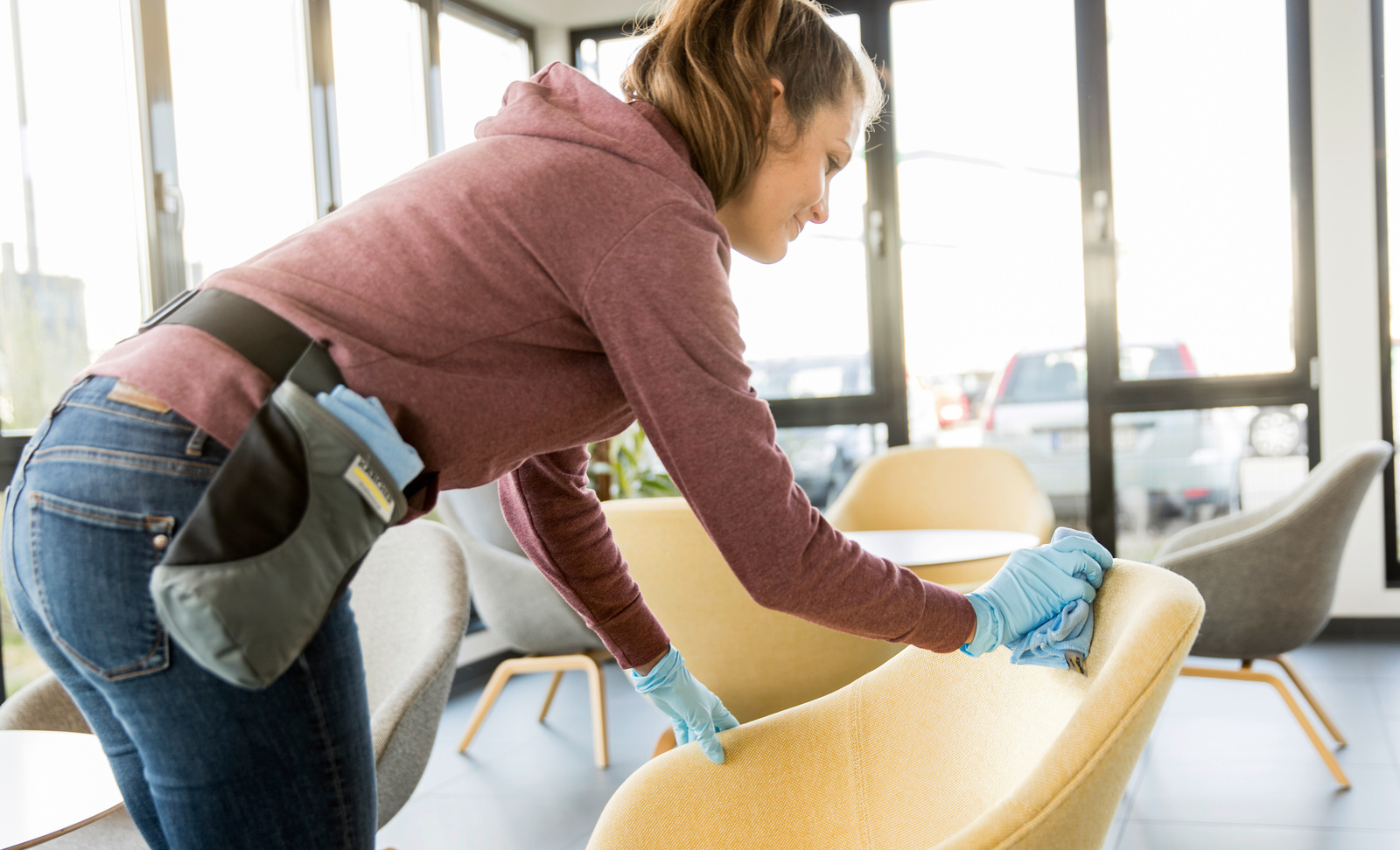
Manual stain removal
Ninety per cent of all stains are already water-soluble – it is therefore advisable to tackle the stain first with a microfibre cloth or microfibre pad and water. A gentle dabbing motion is required, then gentle rotating movements from top to bottom, which removes the dirt from the fibre. This is important to keep the dirt from being pushed further into the fibres.
If the stains are not water-soluble, a stain remover based on water-miscible solvents should be used. Spray a microfibre cloth with the stain remover spray and dab the affected area until the stain comes off. Then remove the stain from the fibre with gentle rotating movements from bottom to top.
Tips:
- Remove loose dirt with a vacuum cleaner prior to stain removal
- Do not exert any excess pressure on the surface
- Always use a clean area of the cloth
- Drying can be accelerated by dabbing with a dry cloth
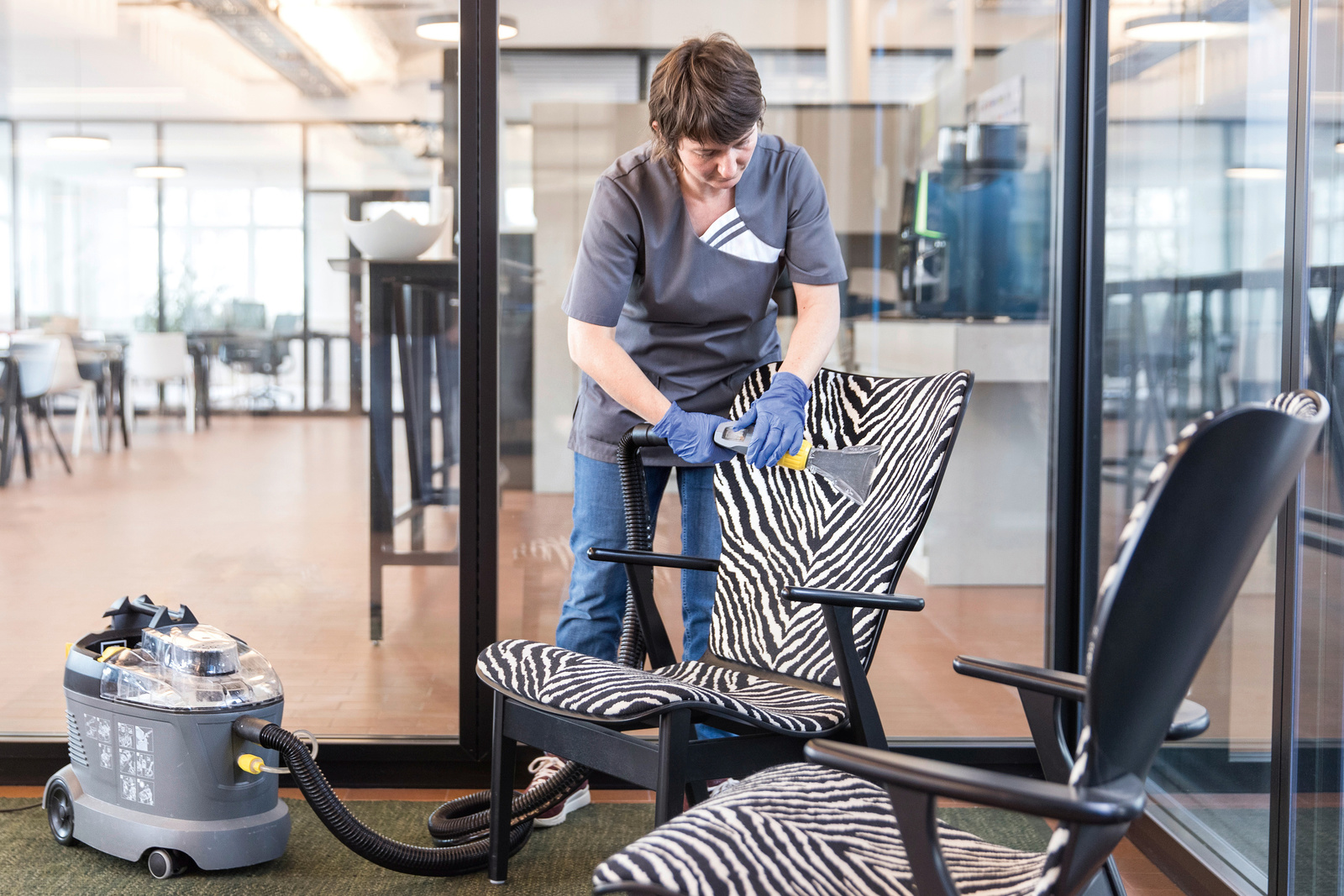
Mechanical upholstery cleaning
For more elaborate deep cleaning of upholstered furniture, there is the option of using a spray extraction machine. Spray extraction, which can be carried out in both a single-step or a two-step process, achieves a thorough cleaning result deep into the material.
Surface cleaning
To ensure that all visitors feel completely at ease, special attention should also be paid to surface cleaning. Due to increased hygiene requirements, the reception desk, a hub of human interaction, once again plays a hugely important role here.
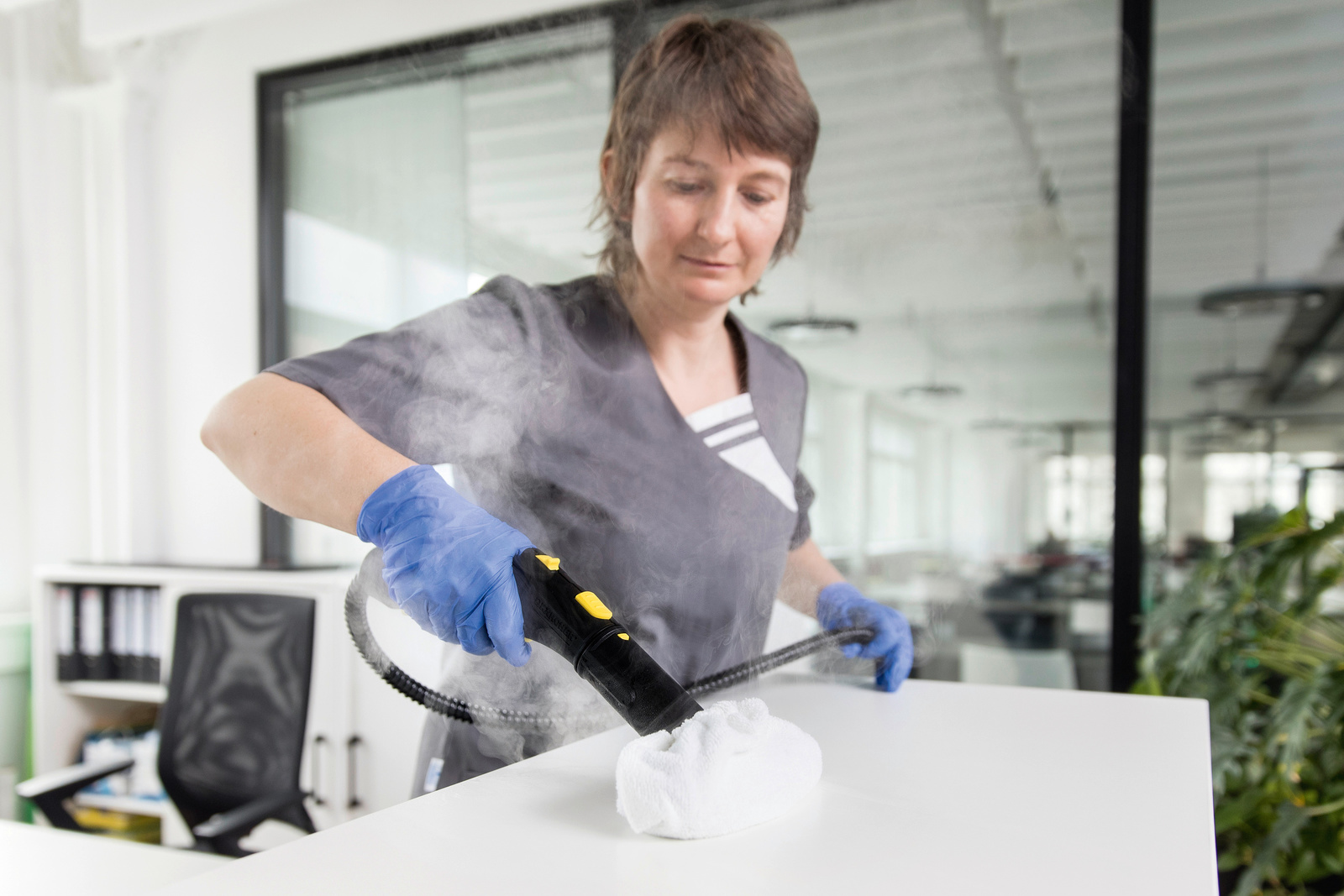
Using steam cleaners for surface cleaning
As an alternative, a professional steam cleaner can be used. The machines are an effective and time-saving solution thanks to the high cleaning temperature, helping to ensure appropriate hygiene and combat germs or viruses. The steam emerges in very fine drops and, depending on the machine type, at a temperature of around 100 °C and a pressure of up to 8 bar. It is possible not only to clean floors and furniture effectively, but also areas that are difficult to access, which the steam can reach.
A clean reception desk
Reception is an area where impeccable hygiene is of paramount importance. Even before guests approach the desk, they should be given the opportunity to sanitise their hands. Contact surfaces that are touched by many people must be cleaned and disinfected regularly, and the panes of Plexiglas®, which are installed in many places to protect personnel, also require attention. To prevent them from becoming cloudy or scratched, they should be cleaned with a fine microfibre cloth and water. If an additional cleaning agent is used, this must not be highly alkaline or acidic, or have too high an alcohol content, so as not to damage the material.
Tip:
When personnel leave and arrive for a shift change, it is also advisable to pay attention to the area behind the counter –
the desk and telephone, for example, should be cleaned and disinfected.
